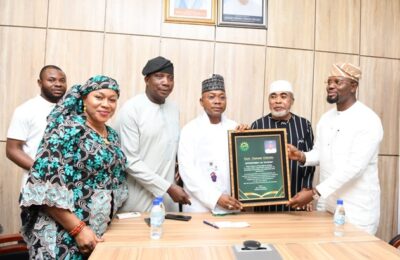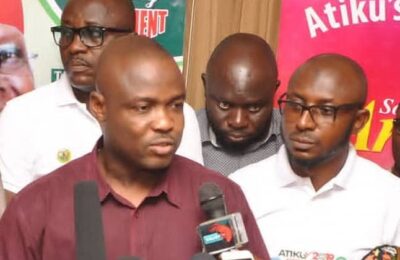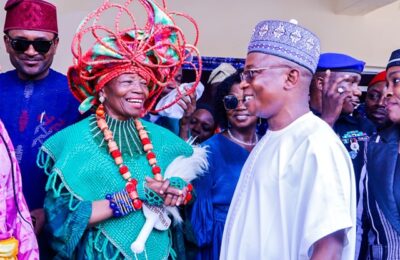In an epoch where many nations convulse under the centrifugal forces of ethnic tension and exclusivism, Igalaland has quietly evolved into a paradigm of cultural consonance. Situated at the heart of Nigeria’s Middle Belt, this ancient territory has resisted the temptation to garrison itself within ethnic silos. Instead, it has blossomed into a complex mosaic of over 250 ethnic groupings—each distinct, each essential, each interwoven into the sociocultural fabric that defines modern-day Igalaland.
The Igala worldview, grounded in ancestral wisdom and spiritual elasticity, has long embraced the philosophy that difference does not denote dissonance. The Tiv, Bassa, Nupe, Ebira, Hausa, Igbo, Yoruba, and Fulani etc do not merely inhabit Igalaland; they have amalgamated with the Igala people through intermarriage, economic symbiosis, and spiritual reciprocity. These integrations have led to a phenomenon sociologists might describe as “intercultural convergence,” but which the average Igala person simply refers to as “abomi”—coexistence.
In Ankpa’s hinterlands, a Fulani herder now quotes Igala proverbs with astonishing fluency, his speech enriched by the idiomatic elegance of the land he has embraced. In Igalamela/Odolu and its environ, the grandchildren of Igbo traders speak Igala at home while maintaining their ancestral tongues—a duality not of confusion, but of cultural calibration.
“A society grows great when strangers are not just welcomed, but woven,” notes Dr. Ibrahim Attah, a cultural historian and former chair of the Centre for Inter-ethnic Harmony, Kogi State University (now PAUU). His work illuminates how Igala cosmology inherently respects plurality, enshrining uchem, the principle of collective well-being, over individual supremacy.
The economic dividends of this multi-culturalism are unambiguous. Markets from Ejule to Idah echo with voices in myriad dialects, yet they operate on a unified currency of trust. Egbira artisans, Nupe fishermen, and Tiv farmers have not only found patronage among the Igala but have, in many instances, become economic linchpins within their respective localities.
Inter-marriage has also recalibrated Igalaland’s socio-political architecture. In Olamaboro, Tiv in-laws have become village council members; In Ojibokole, Oko Agba, Aboli, Egabada, and Ibaji, Fulani elders preside over security committees. These are not symbolic appointments—they are tangible acknowledgments of integration. And in a nation grappling with ethno-nationalism, they are nothing short of revolutionary.
“The presence of others does not subtract from our essence—it amplifies it,” said Prince Opaluwa Oguche, a renowned Igala thinker and linguist, during his 2018 convocation lecture at the University of Abuja. His assertion encapsulates the prevailing Igala ethos—diversity is not merely tolerated; it is valourised.
From a spiritual vantage point, Igalaland remains a rare theatre of syncretic harmony. While other regions are embattled by doctrinal skirmishes, here, the traditional shrines, mosques, and churches exist not in antagonism but in adjacency. The Attah Igala, a symbolic custodian of ancestral integrity, regularly hosts festivals where masquerades from Bassa communities dance alongside Igala Egwu Ata, in a choreography that dismantles boundaries and forges brotherhood.
Dr. Salihu Obaje, an anthropologist and cultural archivist, affirms, “What you see in Igalaland is not multi-culturalism for optics—it is ontological. The people live it, breathe it, and ritualise it daily.”
Moreover, linguistic cross-pollination is a silent, potent testament to this accommodationist temperament. The Igala language has absorbed idioms from Nupe and Igbo, while the syntax of its prayers occasionally mirrors Hausa cadences. This isn’t dilution—it is dialectical evolution, a process that strengthens rather than erases.
At a time when Nigeria finds itself riven by competing identities and mono-ethnic agitation, Igalaland’s model offers a blueprint—not of utopia, but of utilitarian co-existence. The social architecture here suggests that inclusion does not necessitate the erasure of identity, but the enlargement of it.
“We do not lose ourselves by holding others; we find deeper versions of ourselves,” mused Chief Lawrence Ede, a seasoned statesman and former envoy. He attributes Igalaland’s relative tranquillity not to homogeneity, but to the people’s philosophical preparedness to transmute encounters into engagements.
And therein lies the implicit genius of Igalaland: a soft power cultivated not through conquest, but through conversation. A land where Obi- kola nuts, Burukutu and Obiolo or Omi Eka- brewed bear and kindred words replace swords and suspicion. Where a stranger is not asked, “Who are you?” but rather, “What have you brought to the hearth?”
Indeed, if the future of nationhood lies in our ability to manage multiplicity without malice, then the Nigerian state—and by extension, the African continent—would do well to take notes from this humble yet profound region. Because in Igalaland, difference is not a danger to be neutralised, but a resource to be nurtured.
And if one day Nigeria ever hopes to erect a house that all its children can call home, then surely, it must start by learning from the village that has always left its doors open.
For in Igalaland, politics may bring disunity, but diversity does not divide. It deepens, dignifies, and ultimately, defines.
– Inah Boniface Ocholi writes from Ayah – Igalamela/Odolu LGA, Kogi state.
08152094428 (SMS Only)




